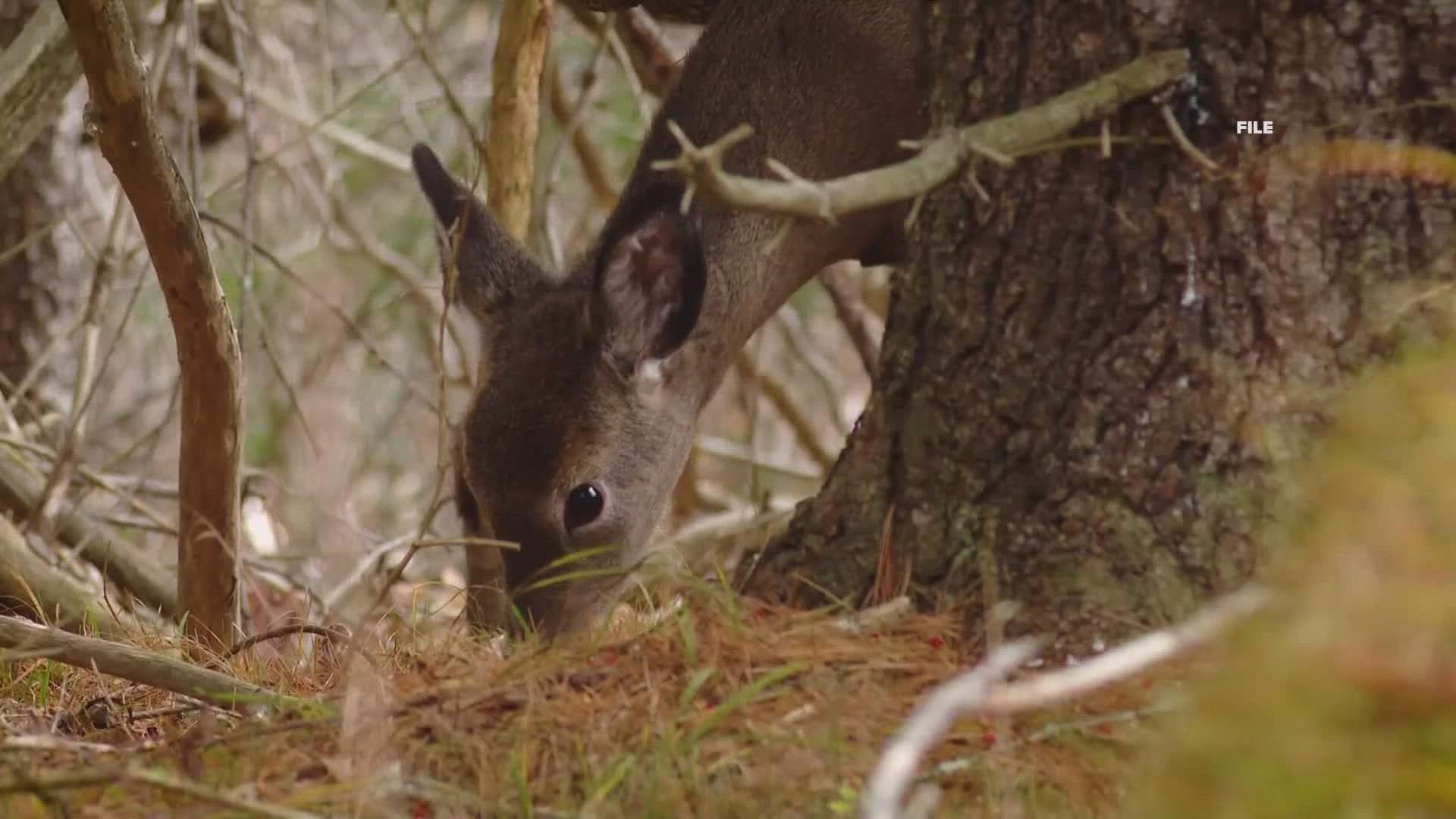AUGUSTA, Maine — State wildlife biologists plan to expand testing of deer and other game following the discovery of high levels of the toxic chemicals known as PFAS in deer meat from the greater Fairfield area.
Last week, a "do not eat" advisory was issued for deer harvested from Fairfield and five surrounding communities, considered a hotspot for PFAS contamination. The chemicals are used in household products from carpet, furniture, waterproof clothing, and fire fighting foam.
A more far-reaching plan to test deer, possibly turkey and other wildlife, is in the works before next year's hunting season.
"We are also working with DEP and CDC to identify other locations for testing as well. Those plans are still being developed," Nate Webb, wildlife division director for the Maine Department of Inland Fisheries & Wildlife, said.
An ongoing Department of Environmental Protection investigation in the Fairfield area focuses on well water contaminated with industrial chemicals, which have been linked to many health problems, kidney issues, cancer, and immune system dysfunction.
The source of the contamination is wastewater sludge, some from paper mills, spread as fertilizer on farm fields for decades. Over the next several years, regulators plan to test hundreds of sites beyond the Fairfield area. Thirty-four have been identified as a top priority for sampling.
"We don't have any evidence that deer in any other locations have been impacted," Webb added.
The "do not eat" advisory for only six central Mane communities is not easing concerns about possible widespread PFAS contamination. Even with the hunting season winding down, the state's largest organization for hunters and other sportsmen wants more to be done to ensure wildlife from other areas of the state are safe to eat.
David Trahan is the executive director of the Sportsman's Alliance of Maine, which represents more than 30,000 sportsmen and women.
"We harvested, at last count, nearly 38,000 deer in this state. Those 38,000 deer get shared with families and friends, that could impact 100,000 people," Trahan said.
There are currently no labs in Maine that have the capability. Only a few nationwide do the testing, and often these labs don't accept samples from private citizens.
Officials from IF&W sent meat samples to a lab in Massachusetts before hunting season got underway but a backlog resulted in the findings being released with only a few weeks left in the season.
Discussions have just begun about conducting PFAS testing on deer and game at the University of Maine Cooperative Extension Diagnostic and Research Lab in Orono, which tests deer ticks for Lyme and other pathogens. Staff and equipment would run more than half a million dollars, but no decisions have been made.
For more information about PFAS exposure and possible health effects from the U.S. Centers for Disease Control and Prevention, click here.

